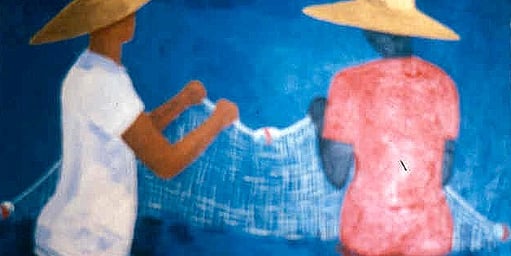The Hidden Depths: A Look at African American Fishing
A look at the history of fishing among African Americans beginning in Africa.


African American history is a vast and complex tapestry, woven with threads of resilience, innovation, and culture that dates back to the African diaspora. One thread often overlooked is the history and influence of African Americans in fishing, which has played an instrumental role in their survival, livelihood, and community.
Fishing in the African Diaspora
Our journey begins during the Transatlantic Trade, when Africans were forcibly taken to the Americas. These individuals, hailing from various coastal and riverine societies, brought with them an expansive knowledge of aquatic resources. Despite the harsh and oppressive conditions of enslavement, they utilized their expertise to contribute to the fishing practices in their new environment, utilizing techniques like fish traps, longlines, and hook-and-line fishing.
Post-Emancipation: Survival and Livelihood
In the aftermath of the Civil War and the abolition of slavery, African Americans faced the daunting challenge of forging a new path towards economic independence and survival. For many, especially in coastal regions of the South like the Carolinas and the Gulf States, fishing became a key aspect of their livelihood. African American fishermen and oyster gatherers harvested the sea and rivers not only to feed their families but also to create thriving businesses, contributing significantly to the region's seafood industry.
The Rise of Recreational Fishing
Fast forward to the mid-20th century, with the rise of leisure time and disposable income, African Americans began to participate more in recreational fishing. While this pastime was often marred by the bitter taste of segregation, it offered a precious opportunity for African Americans to reconnect with nature, find solace in their communities, and foster intergenerational bonding. Stories, traditions, and fishing techniques were shared between the elder and younger generations, keeping the rich cultural heritage alive.
Influence on Culture and Cuisine
Fishing has also left an indelible mark on African American culture and cuisine. Fish fries, for instance, have a special place in the African American culinary tradition. They served not just as a means of sustenance, but also as community events and fundraisers for churches, civil rights groups, and other organizations. Dishes like catfish stew, fried porgy, and pickled shrimp can be traced back to the fishing traditions of African American communities.
The Legacy and Future
Today, African American fishing culture is experiencing a renaissance. Organizations like Black Girls Fish and Black Men Fishing are encouraging more African Americans to participate in recreational fishing and promoting representation in the industry. These initiatives celebrate African American fishing heritage, aim to address disparities in access to natural resources, and ensure the preservation of this rich and vibrant tradition.
In conclusion, the African American fishing history is not just about the act of catching fish; it's a story of survival, resilience, cultural preservation, and community. By casting light on this overlooked aspect of African American history, we enrich our understanding of the diverse narratives that shape our nation's past, present, and future.


